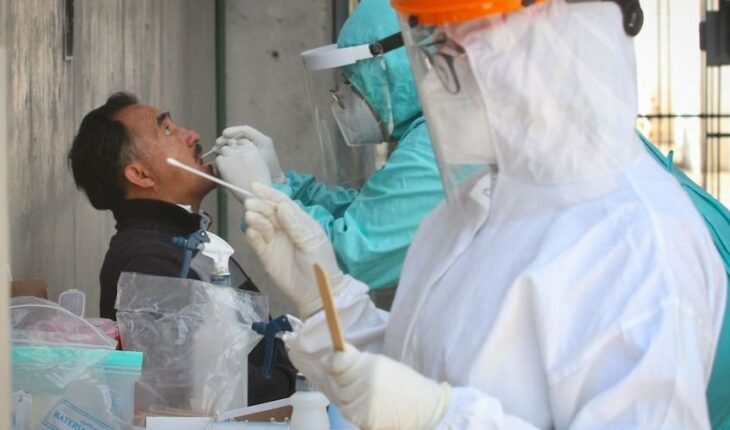New Covid-19 infections began to decline in several countries in the Americas, although they remain “very high,” but deaths increased, particularly in parts of Central and South America, the Pan American Health Organization (PAHO) reported Wednesday.
The regional office of the World Health Organization (WHO) noted that the first week of February saw more than 4.8 million new cases of Covid-19 and more than 33,000 new deaths in the Americas.
This represents a 31% reduction in cases and a 13% increase in deaths compared to the last week of January.
In North America, new infections and deaths fell in the three countries – the United States, Canada and Mexico – although hospitalizations only decreased in the first two.
Read: Mexico reports more than 667,000 extra deaths in pandemic; 70% directly associated with COVID
New cases fell across Central America, but deaths rose nearly 30 percent. The decrease in infections was pronounced in El Salvador, by 70%, and in Belize and Panama, by more than a third.
South America saw a slowdown in infections, with halving in Argentina and Peru. But COVID-19 deaths continued to rise, with increases from 9.4% in Bolivia to 42% in Venezuela.
In addition, an increase in hospitalizations was observed in most of the countries of the Southern Cone, with an increase of 50% in Chile.
Fewer new cases and more deaths were also reported in the Caribbean, except in some countries. In Dominica, for example, infections increased by 88%.
PAHO Director Carissa Etienne underlined the impact of vaccination in reducing cases of severe illness and death from COVID-19.
“A trend stands out: countries with higher vaccination coverage are seeing fewer admissions and deaths in intensive care units,” he said at a press conference.
“This emphasizes the importance of expanding access to vaccines, including booster doses,” he said.
According to PAHO figures, one in four people in the Americas has not received a single dose of the COVID-19 vaccine.
“Uncertainty”
Does the decrease in cases suggest the end of the pandemic?
“The main characteristic of this pandemic remains the uncertainty of its evolution. And this requires some caution. New variants of concern may emerge and completely change the epidemiological profile of covid-19,” Etienne warned.
According to Sylvain Aldighieri, PAHO’s incident manager, “we are probably on the downward slope of a global wave caused by omicron.”
Ómicron, the fifth variant of concern designated by the WHO since the appearance of the virus at the end of 2019 (after alpha, beta, gamma and delta), has generally caused less severe cases, but the transmissibility has been much higher, which “still has a significant impact,” he said.
Read: When covid testing should be applied and when not, according to WHO and PAHO
“If additional variants were to emerge, we cannot anticipate whether they would be more or less serious and transmissible, and this is an uncertainty that we have to deal with,” Aldighieri said.
Etienne stressed that while it is possible that the virus that causes covid-19 “eventually” will become endemic, “this may take a few years.”
“Unfortunately, we expect to see new epidemics or large outbreaks even in areas with high vaccination coverage, especially where public health and social distancing measures are relaxed,” he said.
What we do at Animal Político requires professional journalists, teamwork, dialogue with readers and something very important: independence. You can help us keep going. Be part of the team.
Subscribe to Animal Político, receive benefits and support free journalism.#YoSoyAnimal





